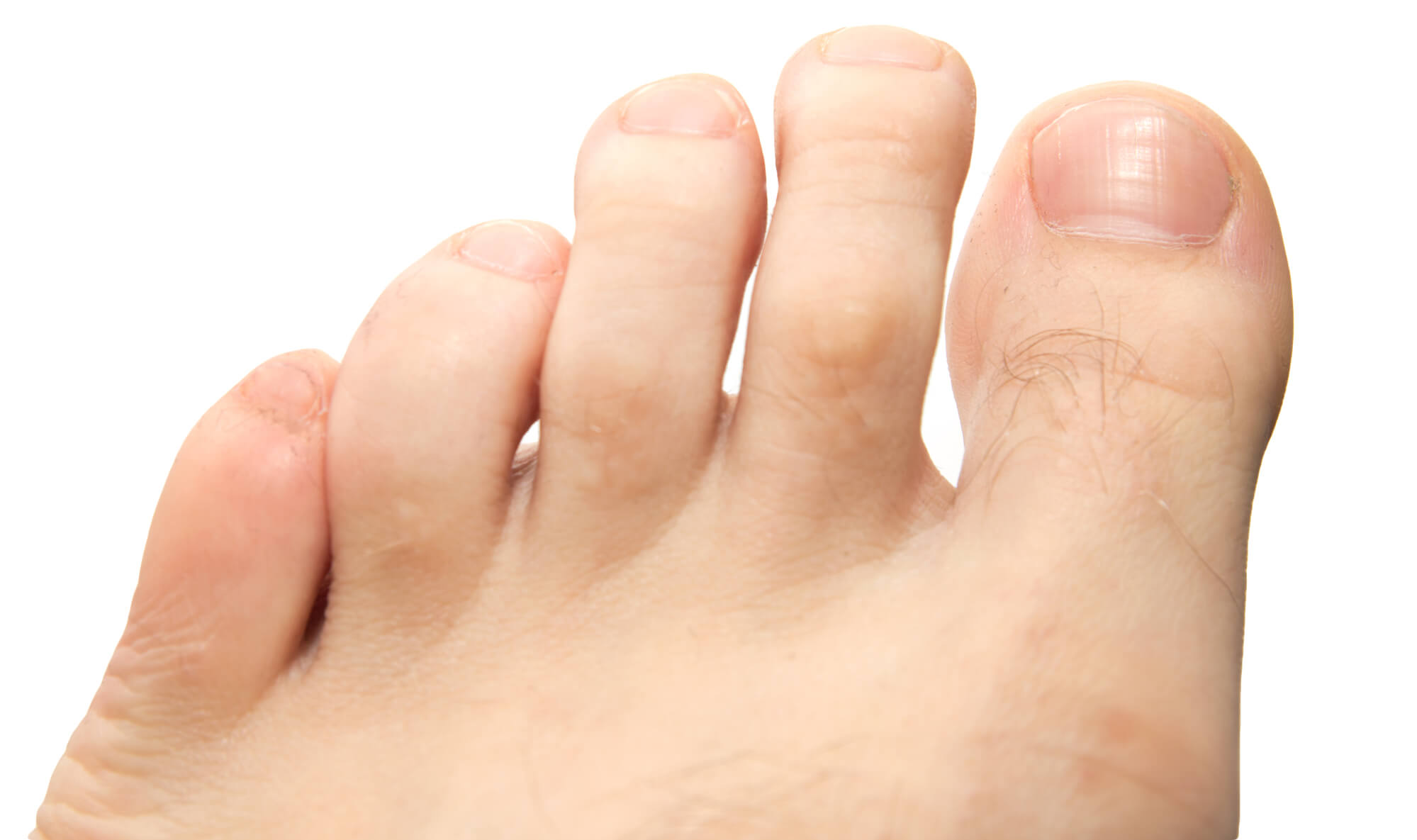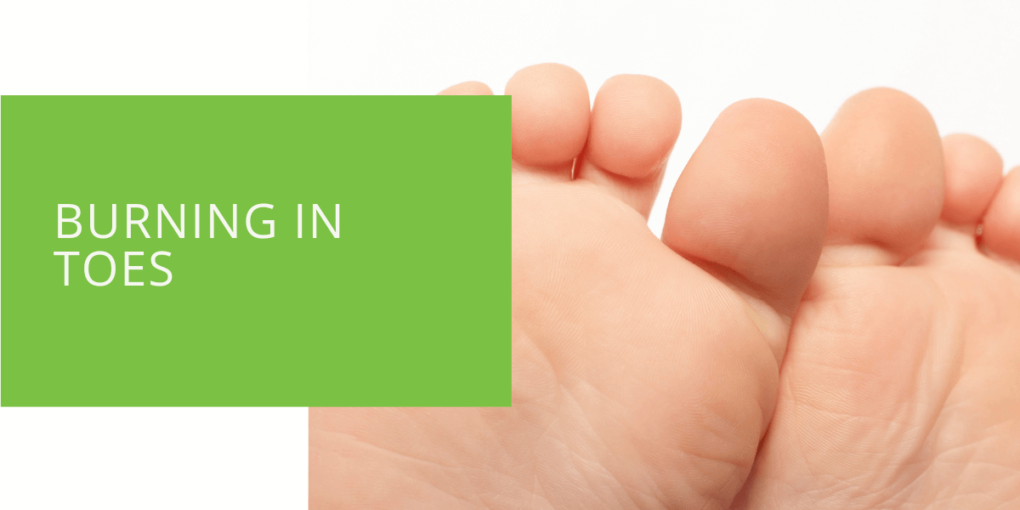Burning in Toes: Causes, Symptoms & Treatment
If you experience a burning sensation in your toes, you may suffer from burning feet syndrome. This symptom can range from mild to severe and can be caused by various factors, including nerve damage, medical conditions, and infections. This article will explore the common causes of burning feet, the symptoms, diagnosis, and treatment options.
Causes of Burning in Toes
Burning feet syndrome is usually caused by nerve damage in the feet. This nerve damage can be due to a variety of factors, including:
- Peripheral neuropathy: This condition can be caused by diabetes, kidney disease, or toxins, leading to numbness, tingling, and burning sensations in the feet.
- Vitamin deficiency: Certain vitamin deficiencies, such as a lack of vitamin B12, can cause nerve damage and lead to burning feet.
- Chronic kidney disease: This can cause nerve damage and lead to burning sensations in the feet.
- Hypothyroidism: This condition can cause a burning sensation in the feet due to poor blood flow.
- Infections: Fungal infections, such as athlete's foot, can cause a burning sensation in the feet.
- HIV: This disease can cause neuropathy, leading to burning feet.
- Neuroma: This is a benign growth on a nerve that can cause a burning sensation in the feet.

Symptoms of Burning in Toes
Burning feet syndrome can cause a range of symptoms, including:
- Burning sensation: The most common symptom of burning feet syndrome is a burning sensation in the toes, which may spread to the entire foot. The sensation can be mild to severe, constant, or come and go. The burning sensation can be described as feeling like pins and needles or like the feet are on fire.
- Numbness or tingling: In addition to a burning sensation, burning feet syndrome may also cause numbness or tingling in the toes or feet. These sensations may be intermittent or constant and can also be described as feeling like electric shocks.
- Discomfort or pain: Burning feet syndrome can cause discomfort or pain in the feet, which may be aching, stabbing, or throbbing. This pain can also be felt in the legs and aggravated by standing or walking for long periods.
- Fatigue in the feet or legs: Burning feet syndrome may cause fatigue in the feet or legs, making it difficult to stand or walk for long periods. This fatigue may also be accompanied by weakness in the feet or legs.
- Redness or swelling: In some cases, burning feet syndrome can cause redness or swelling in the feet, which may be accompanied by a warm or hot feeling.
- Tenderness in the ankle area: Burning feet syndrome can cause tenderness in the ankle area, which may be sensitive to the touch.

Diagnosis of Burning in Toes
To diagnose the cause of burning feet, a podiatrist may perform a physical examination and medical history. The podiatrist may also recommend diagnostic tests such as a nerve conduction study or blood tests to determine the cause of the burning sensation. An ankle or foot clinic may sometimes be recommended for further evaluation.
Treatment of Burning in Toes
The treatment of burning feet syndrome depends on the underlying cause. In some cases, treating the underlying condition can alleviate the symptoms of burning feet. Treatment options may include:
- Vitamin supplements: If a vitamin deficiency is causing the burning sensation, supplements may be recommended.
- Medications: Medications such as pain relievers, anti-inflammatories, or antidepressants may be prescribed to alleviate symptoms.
- Lifestyle changes: Lifestyle changes such as exercising regularly, avoiding caffeine and alcohol, and wearing comfortable shoes may help alleviate symptoms.
- Injections: In some cases, injections may be recommended to alleviate the burning pain.
- Surgery: If a neuroma or other growth causes the burning sensation, surgery may be necessary to remove the growth and alleviate symptoms.

Prevention of Burning in Toes
Burning feet syndrome can be a debilitating condition, but there are several ways to prevent it from occurring. By following these prevention tips, you can maintain good foot health and reduce your risk of developing burning feet syndrome:
- Maintain good foot hygiene: Keeping your feet clean and dry is important to prevent fungal infections, which can cause burning feet syndrome. Wash your feet daily with soap and water and dry them thoroughly, paying extra attention to the spaces between your toes. Use talcum powder to help absorb moisture and prevent fungal growth.
- Wear comfortable shoes: Wearing comfortable shoes that fit well can help prevent foot pain and discomfort, which can lead to burning feet syndrome. Avoid shoes that are too tight or loose, as they can cause rubbing and irritation. Choose shoes with a cushioned sole and good arch support to prevent foot fatigue.
- Avoid tight socks or shoes: Tight socks or shoes can restrict blood flow to the feet, exacerbating the symptoms of burning feet syndrome. Avoid wearing socks or shoes that are too tight, and choose socks made of breathable materials such as cotton or wool.
- Check feet regularly: Checking your feet for any signs of injury or changes in feeling is important to catch any potential problems early on. Look for blisters, sores, redness, or swelling, and report any changes in feeling or sensation to your podiatrist.
- Seek prompt medical attention: If you are experiencing persistent foot pain or discomfort, or if you notice any changes in feeling or sensation in your feet, it is important to seek prompt medical attention. Early diagnosis and treatment can help prevent the progression of burning feet syndrome and improve your overall foot health.
Conclusion
Burning feet syndrome can be a frustrating and uncomfortable condition to deal with, but there are treatment options available. By following the prevention and treatment tips outlined in this article, you can alleviate the symptoms of burning feet syndrome and maintain good foot health. It is important to seek medical attention if you experience persistent symptoms or if the symptoms worsen over time. A podiatrist can help diagnose the underlying cause of the burning sensation and recommend appropriate treatment options.
Burning feet syndrome can be caused by various factors, including nerve damage, medical conditions, and infections. The most common symptom is a burning sensation in the toes, but other symptoms can also occur. Treatment options depend on the underlying cause and may include medications, lifestyle changes, injections, or surgery. By following prevention tips and seeking medical attention when necessary, you can maintain good foot health and alleviate the symptoms of burning feet syndrome.

